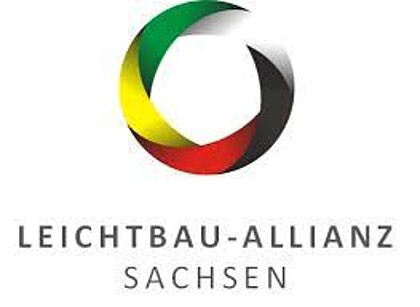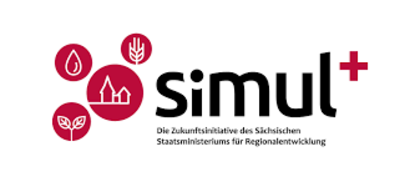The results of the CircEcon requirements concept for hybrid material systems were presented at the digital simul+ forum "Greenhouse gas-neutral circular economy in Lausitz".

On July 21, 2021, the digital simul+ forum "Greenhouse gas-neutral circular economy in Lausitz " took place with over 90 participants to present the central results of the CircEcon requirements concept for hybrid material systems. Under the umbrella of the Leichtbau-Allianz Sachsen (LAS ), the three technical universities of Chemnitz, Dresden and Freiberg and the Zittau/Görlitz University of Applied Sciences (HSZG) intend to design and build a unique European research campus(CircEcon: Green Circular Economy) in Lausitz and operate it as an interdisciplinary research facility. An assessment of potential and a technical and economic evaluation of particularly relevant key topics, which form the cornerstones of the dislocated CircEcon research campus, is currently being developed in a requirements concept funded by the simul+ future initiative.
The ecological and economic problems can only be solved in the future through the interaction of the circular economy and the energy transition. The CircEcon project forms a holistic approach to this - starting with circular design, through maximum resource efficiency in production, to maximum waste recycling. CircEcon provides sustainable recycling concepts for the increasing use of fiber-reinforced plastic composites (FRP) in the energy technology, aviation and rail transport sectors and establishes a nucleus for technology transfer from universities to industry. At the same time, CircEcon opens up special opportunities for skilled workers from the lignite mining regions. With the planned implementation on a pre-industrial scale, CircEcon also creates a framework for the establishment of companies of all sizes with a focus on re-use, remanufacturing, recycling and waste treatment of hybrid materials.
CircEcon is a state initiative in cooperation with the three Saxon technical universities together with the HSZG with a clear reference to the core regions of structural change and, with planned locations in Hoyerswerda, Weißwasser, Rothenburg and Görlitz, pursues a decentralized approach for the greatest possible exploitation of the regionally available potential for the circular economy of hybrid composite materials with metals, polymers, renewable raw materials, fibres made of glass or carbon and other fillers.
After welcoming speeches by State Ministers Thomas Schmidt (Saxon State Ministry for Regional Development (SMR)) and Sebastian Gemkow (Saxon State Ministry for Science, Culture and Tourism), the keynote speech by Dr. Jean-Francois Renault (Coordinator of the Circular Economy Competence Center at Project Management Jülich) and the presentation of the project by Prof. Lothar Kroll (LAS Chairman of the Board, Director of the Institute for Lightweight Structures at Chemnitz University of Technology), the project participants initiated a panel discussion chaired by Prof. Hubert Jäger (LAS Chairman, Director of the Institute for Lightweight Structures at Chemnitz University of Technology). Lothar Kroll (LAS Chairman of the Board, Director of the Institute of Lightweight Structures at Chemnitz University of Technology), the project participants initiated a panel discussion chaired by Prof. Hubert Jäger (LAS Chairman of the Board, Director of the Institute of Lightweight Structures and Polymer Technology at Dresden University of Technology). Representatives from companies, scientific institutions, business associations, administration and politics discussed the potential of the circular economy in Lausitz.
The dialogue format, moderated by Dr. Marzena Schöne (Head of the Future Initiative simul+, SMR), was organized by the LAS in cooperation with the SMR and supported by Composites United, the Saxony Economic Development Corporation and the Cleantech Initiative Ostdeutschland. Dr. Schöne welcomed the guests with a quote from Victor Hugo: "Nothing in the world is as powerful as an idea whose time has come." Prof. Holger Lieberwirth (co-opted board member of the Lightweight Construction Alliance Saxony, Director of the Institute for Processing Machines and Recycling Systems Technology at TU Bergakademie Freiberg) was able to draw a positive conclusion at the end of the event and once again emphasized the core message of Prof. Alexander Kratzsch (panelist). Alexander Kratzsch (panelist, Rector of the HSZG) that the sustainable strengthening and revitalization of the Upper Lusatia region can only succeed if all players continue to work together so successfully.
Source: Press release by Leichtbau-Allianz Sachsen e.V.
Office
Julia Bachmann
c/o TU Bergakademie Freiberg
Prüferstraße 1a, 09599 Freiberg
Phone +49 3731 39-2341 I E-mail: kontakt(at)leichtbauallianz-sachsen.de

